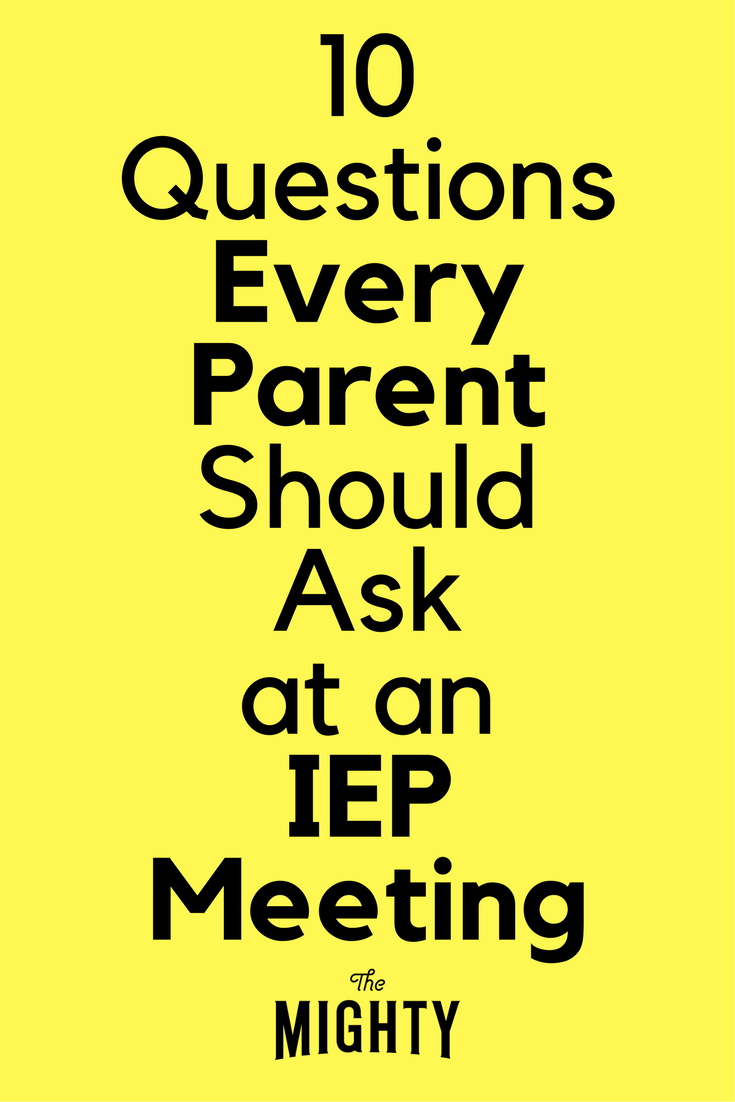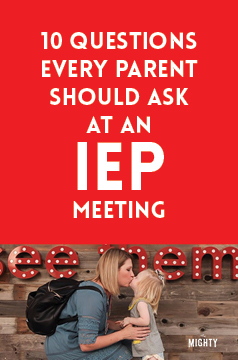In my career as an elementary school teacher and intervention coordinator, I’ve sat in hundreds of individualized education program (IEP) meetings. They’re a regular part of my weekly schedule.
This is probably a weird thing to say, but I actually really like them. Why? They’re an opportunity. It’s a chance for families and support staff to sit down and communicate, a chance to hash out plans for children who need support and a chance to create a positive learning environment for every child.
An IEP meeting is a chance for school personnel and parents to communicate. The one thing I say to every parent before an IEP meeting? Be prepared. Do your homework. An IEP meeting can be an amazingly positive experience if everyone is able to communicate clearly.
Here are several things to do before an IEP meeting:
• Observe in your child’s current classroom setting.
• Reread their expiring IEP if they already have one. Do you feel their academic and behavioral goals have been met? Be prepared to share your thoughts.
• Make a list of concerns and a list of accomplishments. What is going well? What is still a challenge?
• Research the academic standards for your child’s grade level. Consider where they currently fall in terms of those standards. They may need support still, and that’s totally fine. But the more you’ve thought about these long-term goals, the more prepared you’ll be to speak to them and to listen to the team.
• Be prepared to ask questions (a lot of them).
Once you’re at the IEP meeting, here are 10 questions you should ask:
1. How can I contact you?
Ask each member of the IEP team (classroom teacher, resource teacher, speech therapist, occupational therapist, etc.) the best way to contact them. Let them know you’ll be checking in regularly. Set progress reporting meetings.
2. When is a good time to have an informal conversation about my child’s progress?
A couple years back, I had a parent ask if they could come in the mornings before they started their work day. This mother wanted to be able to get weekly feedback about her child’s progress. So she came in one morning a week and helped me pass out papers before the children started their day. She sharpened pencils with me, and we got a protected time to chat. It was an amazing experience. I was more than happy to talk to her, and her assistance while we chatted was a wonderful way for her to give back to our classroom.
3. What do you see as my child’s strengths? How can I support and encourage them?
An IEP meeting shouldn’t be all about weaknesses or discrepancies. Ask how you can support your child’s strengths and passions. Those things are what will make your kiddo successful as an adult.
4. What type of progress can I expect to see? What will this look like?
The great thing about an IEP meeting is that you get the input of specialists. But it can also be tough at times. There are acronyms, teacher speak, developmental milestones — it can be very overwhelming. After each IEP section, ask the team: What should this look like? How long will it be before I see progress? What are the signs that we are moving in the right directions? What should I watch out for?
5. What can I do at home to support our goals?
For students to make the most progress (emotionally or academically), goals need to be fluid between school and home. Ask the team: What can I do at home? Ask for specific suggestions. If it doesn’t make sense, ask for more information.
6. Which of these goals are the top priority?
By the end of an IEP meeting — between behavioral goals and academic goals — you might feel like your head is spinning. Important things to ask: Which goal is top priority? Is it behavioral (transitioning to school, for instance)? Is it academic (phonemic awareness, etc.)? Ask the team. That way, you’ll know what to focus on in discussions about school.
7. How will we measure progress? How will we communicate about this with my child?
Progress towards goals (both academic and behavioral) can be measured in many ways. Will the team be using test scores? A running record with observations of the child? A tally system of behaviors being exhibited (or not exhibited)?
8. What do these supports look like on a daily basis? How will my child’s day look?
Academic and behavior supports can be provided in many ways. Will the supports be a pull-out model (student removed from the class for small-group support) or a push-in model (the support staff blends into the classroom for a period of time)? I’ve often sat in meetings where parents were unaware their child was being taken to a separate classroom for academic support and seemed surprised. You should know exactly what your child’s day looks like!
9. Who will provide these supports? How will my child’s classroom teacher be provided with resources and assistance to implement these supports?
The best thing about having a support team in place? Everyone helps each other (that includes you, mom and dad!) Ask questions. How can you support the teacher? How can the speech therapist support you?
10. What would you do if this were your child?
An IEP meeting can often be all business. In the end, what would I want to know? If this were your own family member, what would you suggest? Trust me, you’ll get some pretty honest answers.
A version of this post originally appeared on Lipgloss and Crayons.
Photo credit: Mily Cooper Photography



